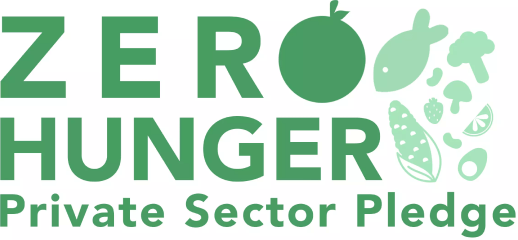
From Pledge to Action: Raising Ambition, Driving Accountability, and Delivering on Private Sector Action Towards SDG 2
The World Benchmarking Alliance (WBA) and World Business Council for Sustainable Development (WBCSD) are proud partners of the Zero Hunger Private Sector Pledge (ZHP). This initiative, which emerged from the United Nations Food Systems Summit (UNFSS) in 2021, recognizes that governments alone cannot eradicate hunger and need more private sector involvement.
Last year, at the half-way point toward 2030, the United Nations confirmed that global progress on more than 50% of targets of the sustainable development goals (SDGs) was weak and insufficient. On SDG 2, the number of people facing hunger and food insecurity has been rising since 2015, with multiple crises worsening the situation. More than ever before, it is clear that the public and private sectors need to work together to address the challenges that we collectively face to end hunger. Furthermore, all stakeholders must be held accountable to the commitments made.
As active partners in the ZHP, we are very supportive of the ZHP and its aim to not only mobilize private sector investments to end hunger but also hold companies accountable to their pledges. During the UNFSS+2 Stocktaking Moment in July 2023, the ZHP announced its accountability framework and began engaging with companies as part of a formal reporting process. We are pleased that the results from the ZHP’s very first accountability report validate that companies are indeed starting to move from pledge to action! This is an important milestone towards accountability for the ZHP and pledging companies alike.
While we are encouraged by these results, there is room for much improvement in increasing private sector involvement, and investments, towards the zero hunger goal. Moreover, the WBA’s 2023 Food and Agriculture Benchmark found that progress towards the much needed food system transformation remains far too low across the environment, social development, nutrition and governance.
Nevertheless, we are encouraged to note that, of the top 10 contributors to the ZHP, 80% are WBCSD member companies. Indeed, the ZHP provides a path for companies to align core business investments with high-impact intervention areas towards SDG 2 as per the recommendations from WBCSD on Food security & nutrition within planetary boundaries.
It is urgent that more companies take action towards sustainable development and SDG 2, in particular. However, we also need more accountability to deliver on concrete and impactful action. That is why we are issuing a call to many more of the companies in our respective networks to join the ZHP, which represents a unique opportunity to demonstrate credible commitments towards ending hunger sustainably.
